Here’s my list of recommended Broadway, off-Broadway, and out-of-town shows, updated weekly. In all cases, I gave these shows favorable reviews (if sometimes qualifiedly so) in The Wall Street Journal when they opened. For more information, click on the title.
Warning: Broadway shows marked with an asterisk were sold out, or nearly so, last week.
BROADWAY:
• Alfred Hitchcock’s The 39 Steps (comedy, G, suitable for bright children, reviewed here)
• August: Osage County (drama, R, adult subject matter, reviewed here)
• Avenue Q (musical, R, adult subject matter and one show-stopping scene of puppet-on-puppet sex, reviewed here)
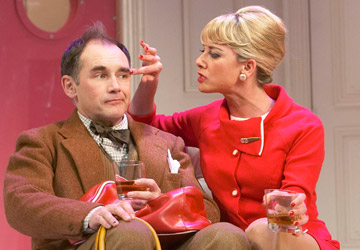 • Boeing-Boeing (comedy, PG-13, cartoonishly sexy, reviewed here)
• Boeing-Boeing (comedy, PG-13, cartoonishly sexy, reviewed here)
• A Chorus Line (musical, PG-13/R, adult subject matter, reviewed here)
• Cry-Baby (musical, PG-13, mildly naughty and very cynical, reviewed here)
• Grease * (musical, PG-13, some sexual content, reviewed here)
• Gypsy (musical, PG-13, adult subject matter, reviewed here)
• In the Heights (musical, PG-13, some sexual content, reviewed here)
• The Little Mermaid * (musical, G, entirely suitable for children, reviewed here)
• Macbeth * (drama, PG-13, unsuitable for children, closes May 24, reviewed here)
• November (comedy, PG-13, profusely spattered with obscene language, reviewed here)
• Passing Strange (musical, PG-13, adult subject matter, reviewed here)
• South Pacific * (musical, G/PG-13, some sexual content, brilliantly staged but unsuitable for viewers acutely allergic to preachiness, reviewed here)
• Sunday in the Park with George (musical, PG-13, too complicated for children, closes June 29, reviewed here)
OFF BROADWAY:
• Adding Machine (musical, PG-13, adult subject matter, too musically demanding for youngsters, closes Aug. 31, reviewed here)
• From Up Here (drama, PG-13, closes June 8, reviewed here)
CLOSING SOON OFF BROADWAY:
• Endgame (drama, PG-13, adult subject matter, closes May 18, reviewed here)
• The Four of Us (comedy, PG-13, adult subject matter, closes May 18, reviewed here)
CLOSING SOON IN MILLBURN, N.J.:
• Kiss Me, Kate (musical, PG-13, far too sophisticated for children, closes May 18, reviewed here)

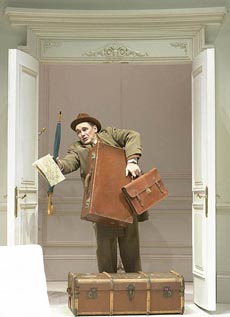 Let us now praise farce, the most ruthless form of comedy, in which a hubristically self-satisfied character (usually male) is faced with the prospect of imminent humiliation (usually sexual) and does all he can to avoid it, thereby making matters worse. I love farce, but for some reason New York producers steer clear of it, and it’s been some years since a slamming-door farce last played on Broadway. Now the drought is over: “Boeing-Boeing,” which was a hit in London last year, has crossed the Atlantic in time for this year’s Tony nominations, of which it will surely receive a hatful.
Let us now praise farce, the most ruthless form of comedy, in which a hubristically self-satisfied character (usually male) is faced with the prospect of imminent humiliation (usually sexual) and does all he can to avoid it, thereby making matters worse. I love farce, but for some reason New York producers steer clear of it, and it’s been some years since a slamming-door farce last played on Broadway. Now the drought is over: “Boeing-Boeing,” which was a hit in London last year, has crossed the Atlantic in time for this year’s Tony nominations, of which it will surely receive a hatful.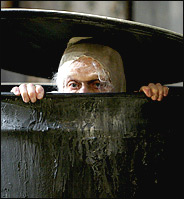 The last time I saw “Endgame,” 9/11 loomed three years nearer in the rear-view mirror, which added an extra twist of relevance to Samuel Beckett’s post-apocalyptic 1957 comedy about four people who appear to be all alone in what is left of the world. I use the term “comedy” loosely, but much of “Endgame” really is supposed to be laughable–if grimly so–which is what gives the play its mordant punch.
The last time I saw “Endgame,” 9/11 loomed three years nearer in the rear-view mirror, which added an extra twist of relevance to Samuel Beckett’s post-apocalyptic 1957 comedy about four people who appear to be all alone in what is left of the world. I use the term “comedy” loosely, but much of “Endgame” really is supposed to be laughable–if grimly so–which is what gives the play its mordant punch.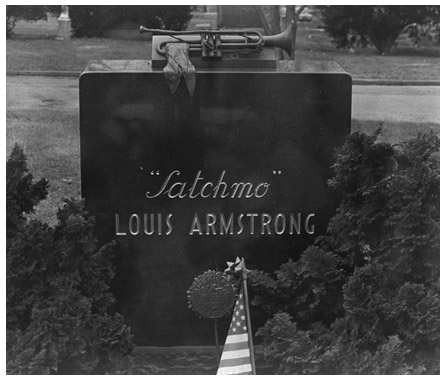 Doing nothing no longer comes naturally to me, but I gave it my best shot yesterday. To be sure, I didn’t spend the whole day doing nothing. I couldn’t–I had a deadline to hit. I got up at seven, wrote and filed my Wall Street Journal drama column, answered my e-mail, and
Doing nothing no longer comes naturally to me, but I gave it my best shot yesterday. To be sure, I didn’t spend the whole day doing nothing. I couldn’t–I had a deadline to hit. I got up at seven, wrote and filed my Wall Street Journal drama column, answered my e-mail, and 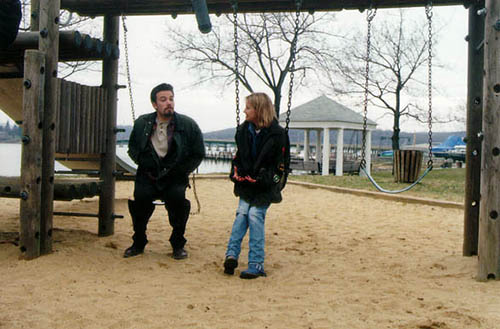 Watching Chasing Amy put me in mind of the brief gaudy hour when sharp-witted indie and indieish flicks like Clerks, Election, Ghost World, Kicking and Screaming, Living in Oblivion, Metropolitan, Next Stop Wonderland, Panic, Pi, Swingers, and You Can Count on Me seemed to be coming out every month or so. Back then I was writing about movies regularly, and I went so far as to predict in 1999 that the independent film was the wave of the narrative future:
Watching Chasing Amy put me in mind of the brief gaudy hour when sharp-witted indie and indieish flicks like Clerks, Election, Ghost World, Kicking and Screaming, Living in Oblivion, Metropolitan, Next Stop Wonderland, Panic, Pi, Swingers, and You Can Count on Me seemed to be coming out every month or so. Back then I was writing about movies regularly, and I went so far as to predict in 1999 that the independent film was the wave of the narrative future: